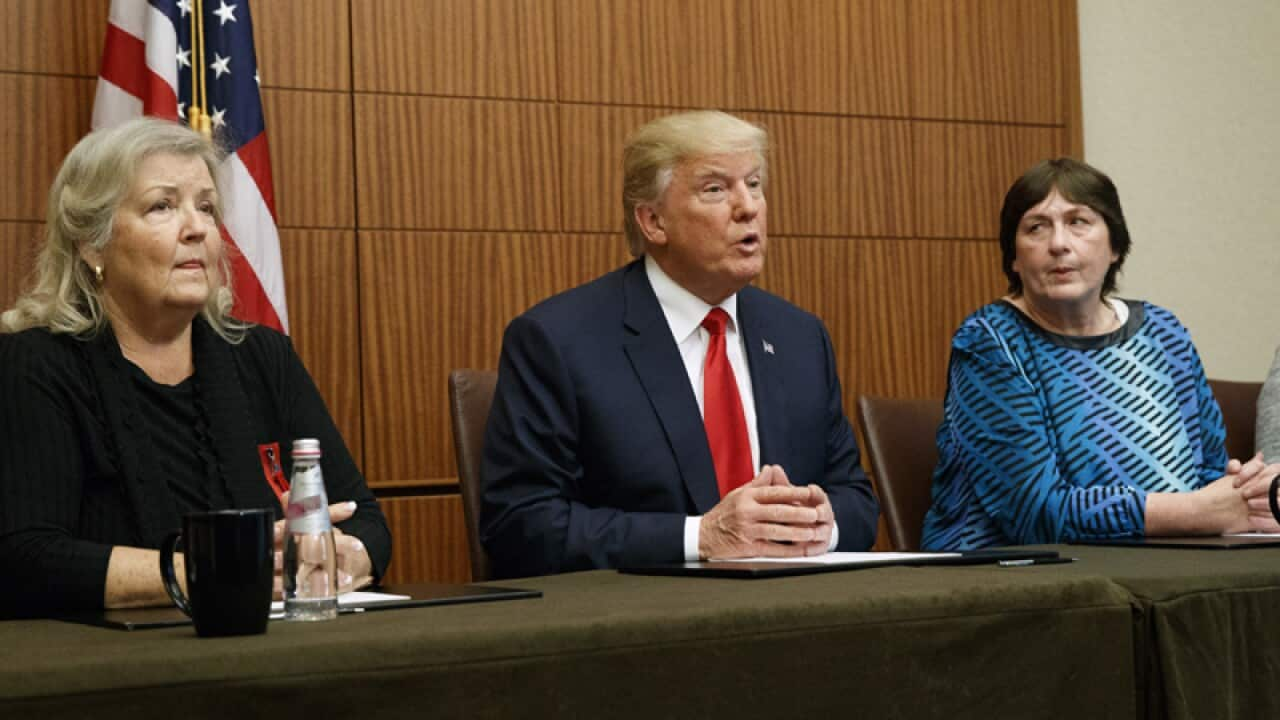Death, declination or otherwise - these are the scenarios under which the Republican presidential candidate can be replaced.
Rule nine of Republican National Committee's provisions describes the valid reasons for replacing a candidate if their position becomes vacant, for example, if they quit, die, or become incapacitated.
However, there is no provision for involuntarily removing a candidate who has already been nominated, explains Associate Professor of American Politics at the US Studies Centre, Brendan O'Connor.
"Trump would need to stand aside, and he won't do that. There's no indication that the man takes the opinions of others who disagree with him, very seriously, within his own party," he said.
Related reading

'Trump failed to show the empathy needed to win the debate'
"And, it's very very unlikely that he will step down."
Making a change to the top of the ticket this close to election day would be without precedent in the history of modern US elections.
Ballot papers, which list Donald Trump, have already been printed and early voting has already begun.
However, increasing pressure may be placed on Trump to step down in the wake of the latest scandal.
Insiders say there's talk of persuading his running-mate Mike Pence to leave the ticket, however Mr O'Connor believes that's unlikely to happen.
"There could be all sorts of pressure that could be placed on Trump. Financial support will probably wane in the coming week or so," he said.
"But all of these things are just really just asserting forms of moral pressure on Trump, and he seems pretty immune to [that]. Contrition is something Donald Trump struggles with."
Related reading

Women accuse Bill Clinton at Trump event
What if Donald Trump dies?
It's an interesting hypothetical to ponder, says O'Connor, and one without precedent.
In 2000, Missouri voters faced a last-minute candidate change in the state's US Senate race after the Democratic challenger Mel Carnahan died in a plane crash, a month before the election.
Carnahan's name remained on the ballot, however, and the dead man won the election.
His widow, Jean Carnahan, was appointed to fill the seat.
"Typically I think the vice presidential running mate would be expected to be top of the ticket and they would choose another Vice Presidential running mate, so that would be the case," Mr O'Connor said.
"It's never happened. In 1912, the running mate of William Taft, who was President at the time, died, and that person was replaced, by Taft, with another running mate."
What if he commits a crime?
Even if, hypothetically, Donald Trump were to commit a major crime, it would not stop him from running for the presidency.
There's nothing in the constitution banning alleged criminals from running for office, and Donald Trump could possibly pardon himself after winning.
And what's more, Mr O'Connor says the most loyal Trump supporters are unlikely to be deterred from voting for him.
"He made the statement himself, earlier in the year, he said he could shoot someone in 5th avenue in New York, and most of his supporters would still want to see him elected President, so that was an outrageous thing to say at the time, but in retrospect it seems pretty spot on." he said.


